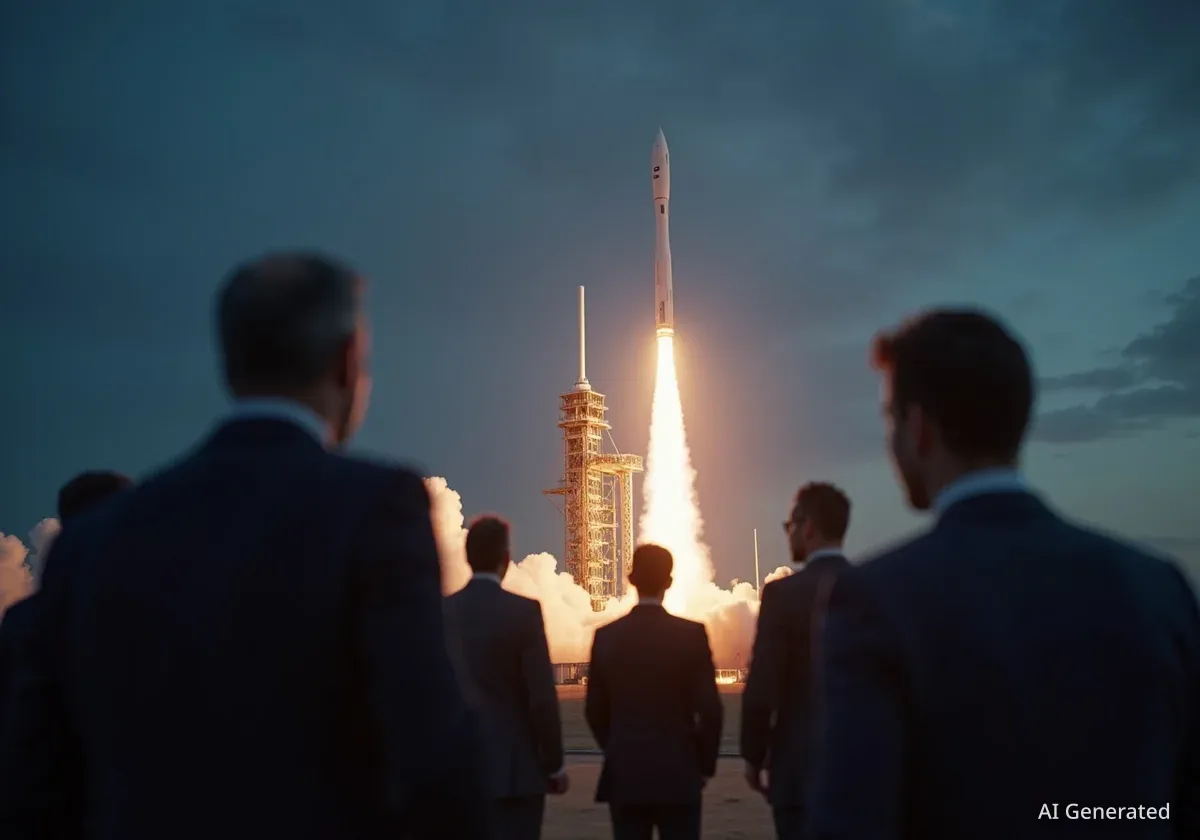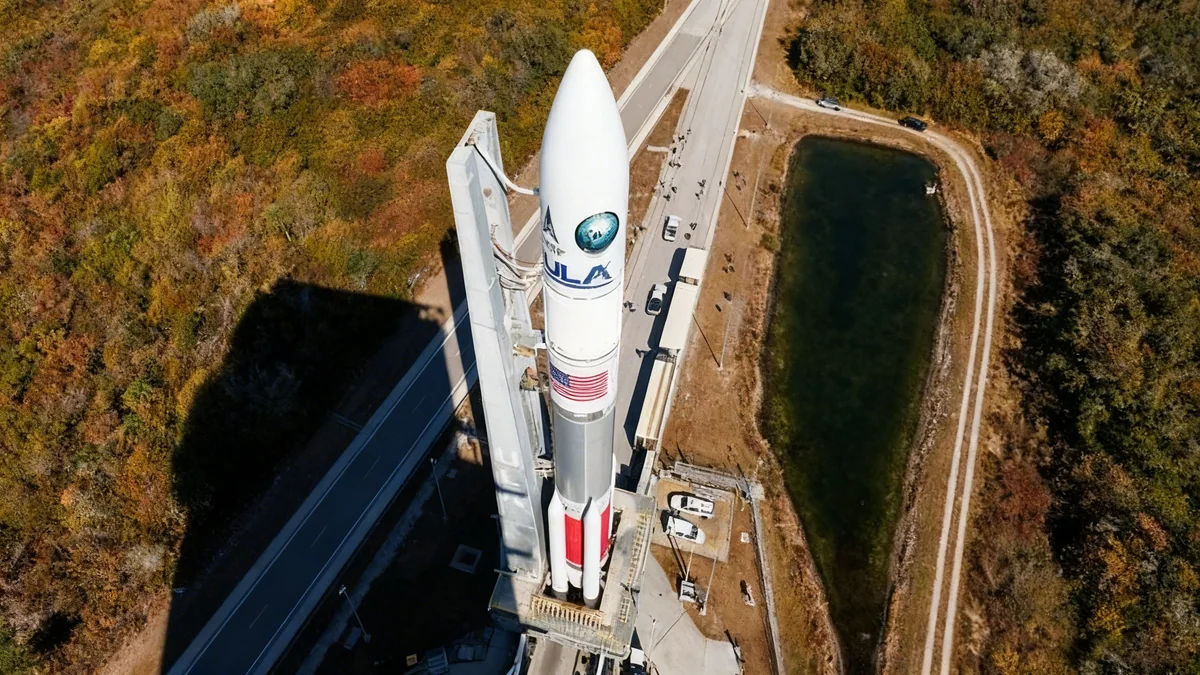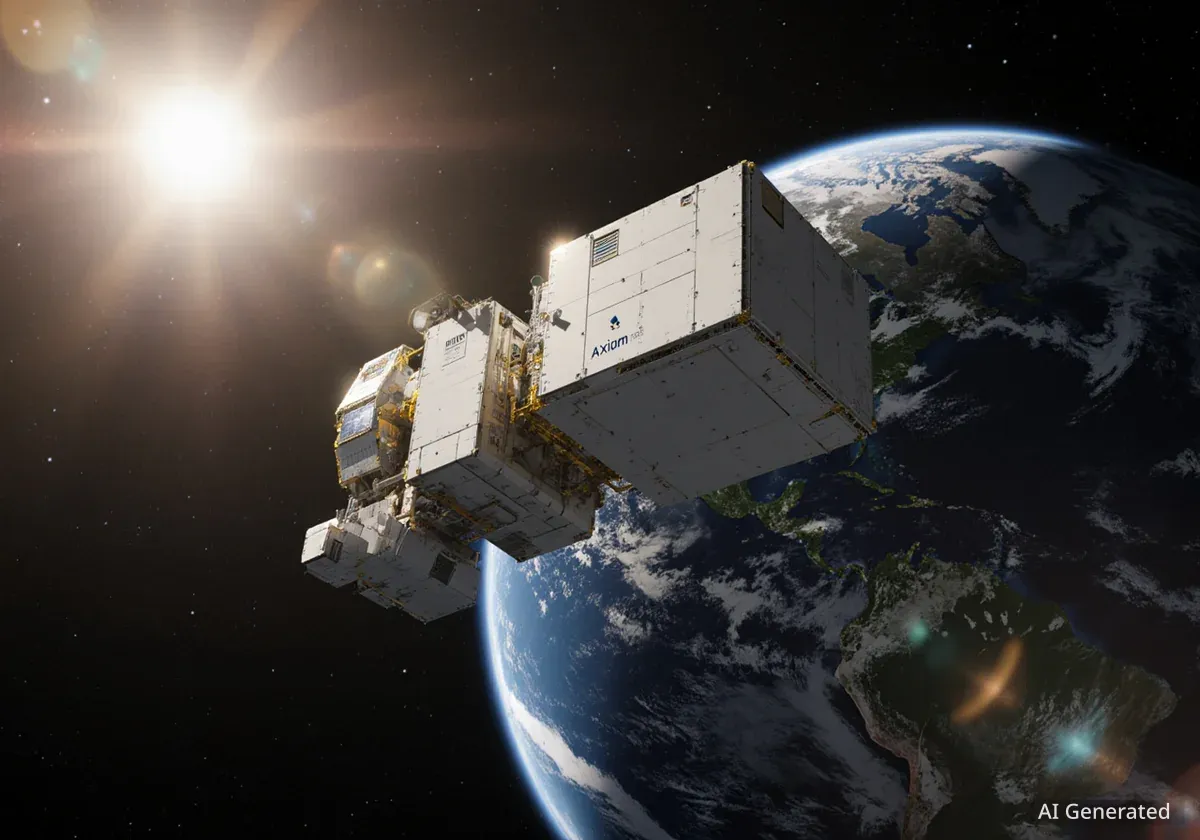A significant increase in defense spending across Europe and the United States is fundamentally altering the commercial space sector. Industry experts point to new government initiatives, such as the U.S. 'Golden Dome' missile defense program, and Europe's push for strategic independence as primary drivers of this transformation, creating a surge in investment and opportunity for space technology companies.
This shift, discussed by investors and executives at a SpaceNews live event on October 8, has unlocked substantial new funding streams and accelerated interest in dual-use technologies that serve both commercial and military purposes. The result is a rapidly evolving landscape where national security priorities are directly fueling private sector growth and innovation in space.
Key Takeaways
- Increased defense budgets in the U.S. and Europe are creating major new opportunities for commercial space companies.
- The U.S. 'Golden Dome' missile defense program is a key driver, expected to rely heavily on satellite technology.
- European nations are investing heavily to develop sovereign space capabilities, reducing reliance on U.S. assets.
- Investor interest in defense and space technology has grown significantly in the past 18 months, leading to higher valuations and market consolidation.
European Push for Sovereign Space Capabilities
European governments are allocating unprecedented funds to their defense and space industries. This move is a direct response to evolving U.S. defense policies and ongoing security concerns highlighted by the conflict in Ukraine. The primary goal is to achieve strategic autonomy in space.
Mark Boggett, chief executive of venture capital firm Seraphim Space, noted the scale of this shift. "There’s now a trillion euros of budget in that market with a very significant need to effectively wean off U.S. capability and create sovereign capability in Europe," he said during the event. "This has created a massive tailwind."
This new focus is channeling funds into critical areas like surveillance, secure communications infrastructure, and military-grade space projects. These initiatives are designed to give European nations independent control over their space-based assets.
Germany's Major Investment
Germany is a prime example of this trend, with plans to invest approximately $41 billion by 2030 to enhance its national space capabilities. This is part of a broader European effort to recognize space as a critical defense domain.
New Wave of Defense Investors
The surge in government spending has attracted a new class of investors to the space sector. Many private capital firms that previously avoided defense are now actively seeking opportunities, particularly in companies with dual-use technologies.
"There’s more investors at the table," Boggett explained. "There’s a lot of investors now that weren’t looking at defense a year ago that are now interested in this market. Dual-use is a relatively attractive way into the market."
This influx of capital is helping to fund startups and established companies alike, accelerating development cycles and increasing competition within the industry.
US Investment and the Golden Dome Program
In the United States, a similar investment boom is underway, largely driven by the Pentagon's next-generation missile defense plan, known as Golden Dome. This ambitious program is expected to heavily utilize a network of commercial and government satellites for threat detection and tracking.
Kirk Konert, a managing partner at private equity firm AE Industrial Partners, emphasized the program's significance. "I think that’s going to be a big driver for how space-based assets will be acquired, not just for Golden Dome, but how they will be acquired for other programs as well," he stated.
Companies are actively positioning themselves to secure contracts related to Golden Dome. For example, Firefly Aerospace, backed by AE Industrial Partners, recently announced its plan to acquire defense analytics firm SciTec. The move is intended to strengthen Firefly's position in the national security market and contribute to the missile defense architecture.
Shifting Investor Sentiment
According to Konert, investor attitudes toward space and defense technology have changed dramatically. "If you rewind 18 months ago, space and defense tech wasn’t one of the best ideas for institutional investors," he said. "Over this past year — and particularly in the last six months — defense tech and space tech are among their top ideas."
The Catalyst for Change: Global Security Concerns
The renewed focus on defense applications for space technology has been building since Russia's 2022 invasion of Ukraine. Theresa Condor, CEO of Spire Global, explained that the conflict served as a powerful demonstration of the role commercial space can play in modern warfare.
"It really showed everyone what commercial space can do in this kind of scenario, whether that’s related to communications or Earth observation," Condor remarked. The conflict highlighted the value of resilient, commercially operated satellite networks for intelligence and communication.
Growing Demand for New Data
Condor also noted that governments are showing increased interest in novel forms of data collection from orbit. This includes monitoring radio-frequency and electronic signals, which can provide unique intelligence insights. This demand has been intensified by observations of GPS jamming and other forms of electronic interference in conflict zones.
- Communications: Providing secure and resilient links for military operations.
- Earth Observation: Supplying high-resolution imagery for intelligence and situational awareness.
- Signal Monitoring: Detecting and analyzing electronic signals from orbit.
She identified the 2025 Munich Security Conference as a key moment when European leaders became "much more worried about having to rely on the United States." This concern has directly fueled the investment in sovereign space systems—satellites and ground infrastructure owned and operated by individual nations.
A New Supercycle for Space and Defense Tech
The combination of increased government spending, new security priorities, and heightened investor interest is creating what some experts call a "long macro super cycle" for the space and defense technology sectors. This cycle is characterized by rising company valuations, increased access to public markets, and a wave of industry consolidation.
"I think we’re still in the early innings of what we’re seeing as a long macro super cycle for defense tech spend and space tech spend globally," Konert concluded.
This global buildup is not limited to one area. It spans satellite communications, Earth observation, missile warning systems, and cybersecurity capabilities. As more capital flows into the market, competition is expected to intensify, likely leading to further acquisitions as larger companies seek to integrate innovative technologies from smaller firms.





